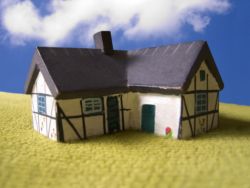Why Is Stamp Duty Is So Unpopular?
On top of everything else when you’re buying a house comes the pain of stamp duty. Now, more than five out of every six homebuyers are forced to pay this unpopular tax.
 House prices have been on the rise for ten years, trapping ever more people into paying the punitive tax. Typically, a buyer has to find an extra £2,450 on top of all the other costs involved.
House prices have been on the rise for ten years, trapping ever more people into paying the punitive tax. Typically, a buyer has to find an extra £2,450 on top of all the other costs involved.
Ex-Chancellor, now Prime Minister, Gordon Brown has put up the rate of stamp duty four times since Labour came to power in 1997. Prior to that only 45% of homebuyers were liable for the tax which raised £675m in 1996-7. In 2004-5 the percentage paying the tax had risen to 71% when the lower threshold was at last increased from £60,000 to £120,000 in March 2005. As a result of that change the number of buyers paying the tax dropped to 55% in the following year, but by then the tax was bringing in £4.6bn to the Treasury coffers.
The new low threshold of £120,000 is now quickly being by-passed as house prices continue to rise, despite recent attempts to cool the market. Most homebuyers used to be exempt from stamp duty when its level was such that most houses fell below the thresholds, but now it is seen, not as a tax on the affluent few, but as a tax on the masses.
House price rises still stand way above inflation, with annual house price inflation now estimated to be 11.1%, compared with inflation at 2.5%.
When Mr Brown got the job as Chancellor stamp duty was 1% on all properties over £60,000. The rates are now 1% on homes between £125,000 and £250,000; 3% on those between £250,001 and £500,000 and 4% for houses selling for over half a million.
The UK’s biggest mortgage lender, Halifax, says that the stamp duty trap has nabbed an extra 2.6m homes in the last nine years. Nearly 20% of houses and flats in England are now worth over £250,000, where stamp duty shoots up to 3%, and don’t forget that is 3% on the entire value of the property, not just the amount over £250,000. Only 2% of London’s property stock is left in the category that incurs no stamp duty.
Figures from last year from the Council of Mortgage Lenders show that 55% of first-time buyers and 86% of home movers using a mortgage had to pay the tax.
The latest figures for June show that the property market is still on the up, with a 1.1% rise in the month. Although experts still forecast that the increase will start to slowdown, in the meantime more people are being caught by stamp duty.
The Treasury prefer to put a different slant on things, saying that five out of six people are paying no stamp duty at all, or only the one percent band. However, there is now no region in England and Wales left where the average asking price for a property is less than £155,000 – a price that would mean stamp duty on £1,550 would have to be paid.
The £250,000 and £500,000 thresholds have not been changed for seven years. Halifax says those levels would be £650,000 and £1.3m if they had gone up in line with house price inflation.
Tom Smith
9th July 2007
Recent Mortgage News:
More Information:
- Doing Your Homework On "Free Legal Fees" [08.06.07]
The process of moving house can be a costly affair. Legal fees and survey fees can easily reach £2,000, and then you have to take into account estate agency fees, removal costs and the ever-irritating stamp duty. But now lenders are beginning to come up with “fees-paid” loans that could slash some of those bills and cut the hassle involved as well.
-
More and more attention is being paid to APRs when people are shopping around for loans. This is not surprising as the very reason the APR was introduced was provide a standard figure that customers could use to compare the prices of loans without getting our their calculators and doing the math themselves. However, there are many other potential charges when taking on credit
- Paying Off Your Mortgage Early
Twenty five years is the average period of a mortgage… Twenty five years is a long time! The dream of many people is to pay off their mortgage early. Can it be done?
- The True Cost Of Your Mortgage
It’s easy to say “go and research the market place to find the cheapest mortgage”, but is it that easy to actually do it and how do you know that you have really got the best mortgage deal when you’ve finished?
- Don’t Forget The Extra Hidden Costs Of Getting A UK Mortgage
For most of us, buying a new home is both one of the most exciting and stressful times of our lives. It goes without saying then that this is not a particularly good time to find out that you may be facing a bill of thousands of pounds in extra hidden costs for getting the mortgage to buy the UK property.
- Loan Penalties
External Links:

